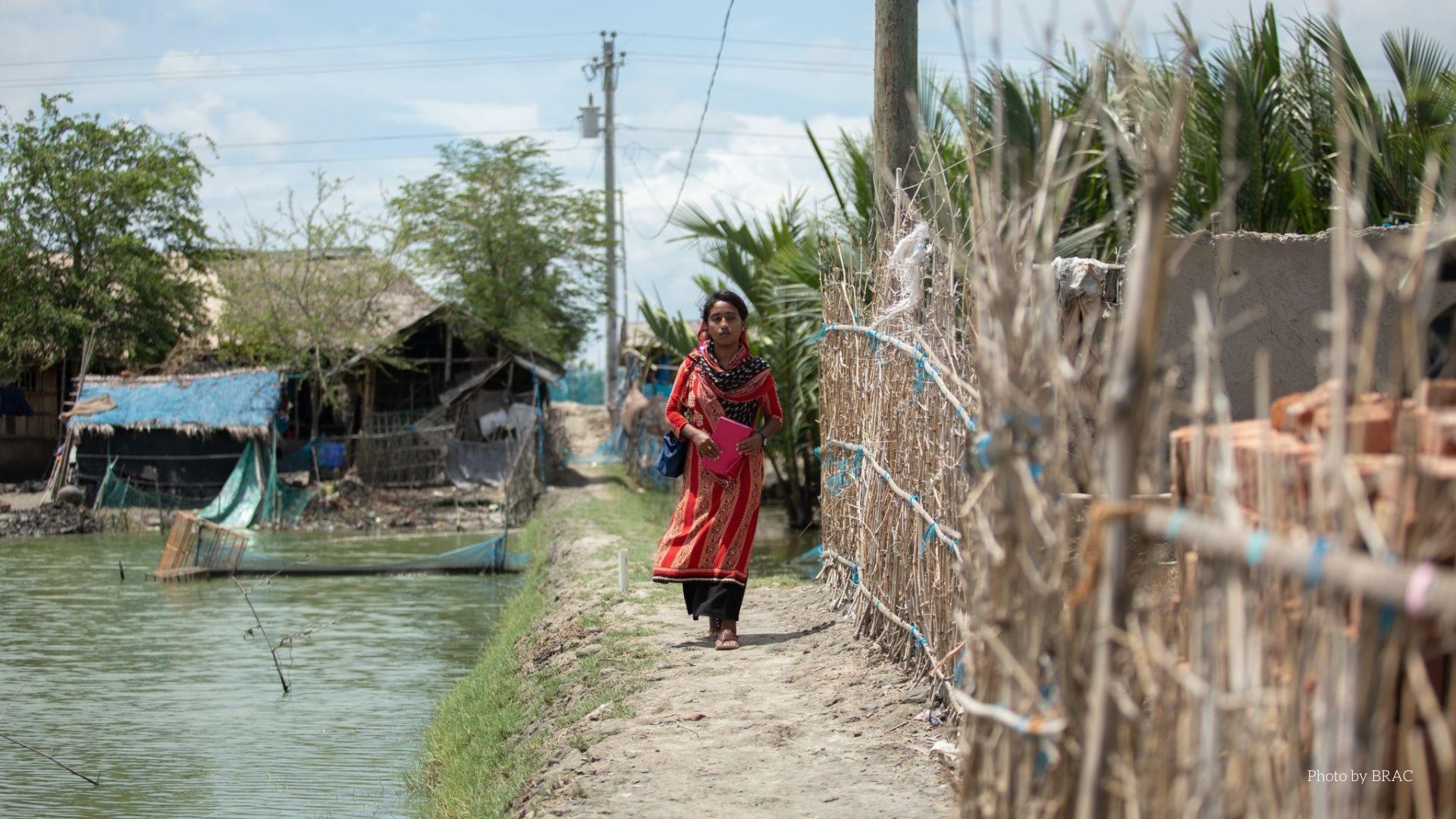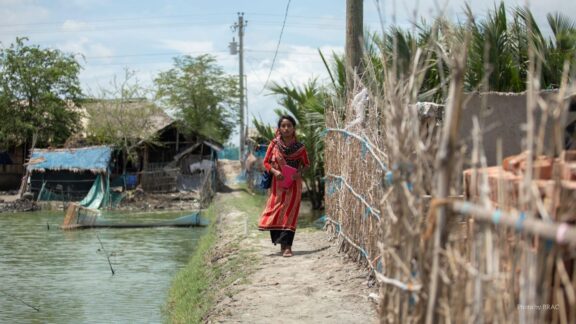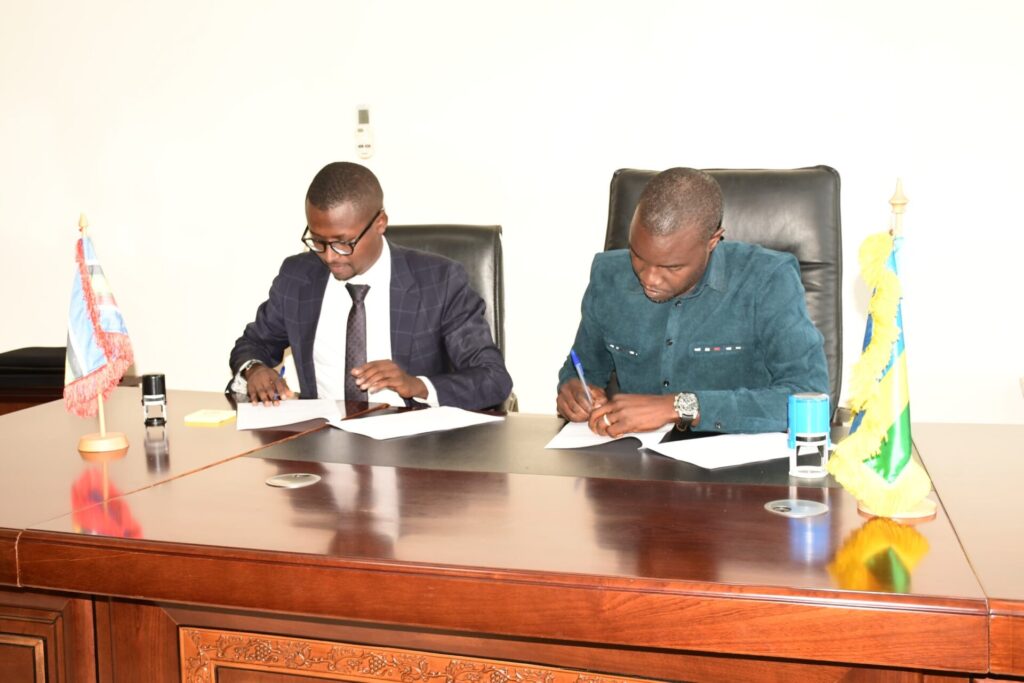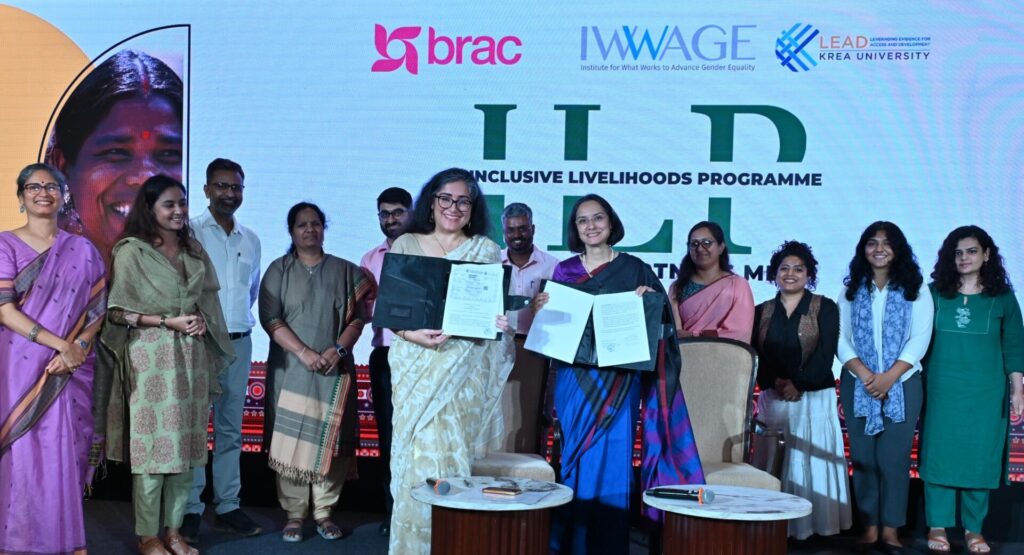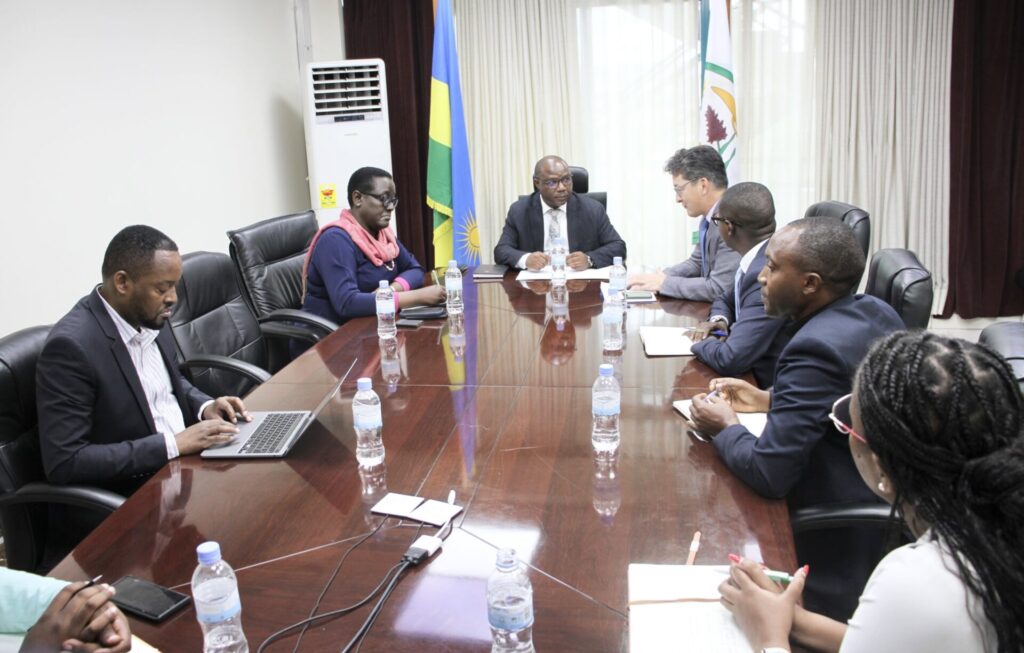By Palash Kanti Das | Director, Ultra-Poor Graduation Programme, BRAC; Upoma Mahbub | Senior Manager of Advocacy, Ultra-Poor Graduation Programme, BRAC, Courtney Calardo | Head of Communications, Ultra-Poor Graduation Initiative, BRAC International, Max Gollin | Manager of Policy and Partnerships, Ultra-Poor Graduation Initiative, BRAC International
The article was originally published on socialprotection.org on November 28, 2023.
—
The Graduation approach is among the most studied poverty alleviation interventions in development, but how will it adapt to a changing climate? On the frontlines of the climate crisis in Bangladesh, BRAC’s Graduation programme offers lessons learned.
Rani Begum and her family lived in a two-storied wooden house by a riverbank in the Gopalganj district of Bangladesh (Tasnin 2021). One fateful night, the river flooded, submerging their entire village. She lost her home and her livestock. She and her family were forced to move to a nearby shelter and survive on rice starch and vegetables. To rebuild their lives, they made the difficult decision to leave behind their village, embarking on a journey to the city of Khulna, a bustling urban centre known for its economic opportunities in hope of a better future.
Millions of people are finding themselves in similar positions. Climate change pushes 26 million people into extreme poverty each year (Lankes et al. 2022), totalling up to 132 million (World Bank 2022) people by 2030. For people already in extreme poverty, the situation is even more dire. They often have limited savings and access to social safety nets. They lack the resources and information to prepare for and respond to worsening climate shocks, making them especially susceptible to economic ruin.
We will not end extreme poverty without mitigating the economic shocks driven by climate change. We are only as resilient as the most vulnerable members of our society. Countries with high levels of extreme poverty are more vulnerable to climate shocks (Bharadwaj et al. 2022), and in low- and middle-income countries, such shocks cause people in poverty to lose 70 percent more income relative to their wealth than the population at large (Lankes et al. 2022).
Approaches to climate adaptive livelihoods and social protection must adopt an explicit focus on extreme poverty. People in the deepest states of poverty, who are uniquely vulnerable to the effects of the climate crisis, need a multifaceted approach to escape the poverty trap long term and build the resilience necessary to avoid falling back in.

